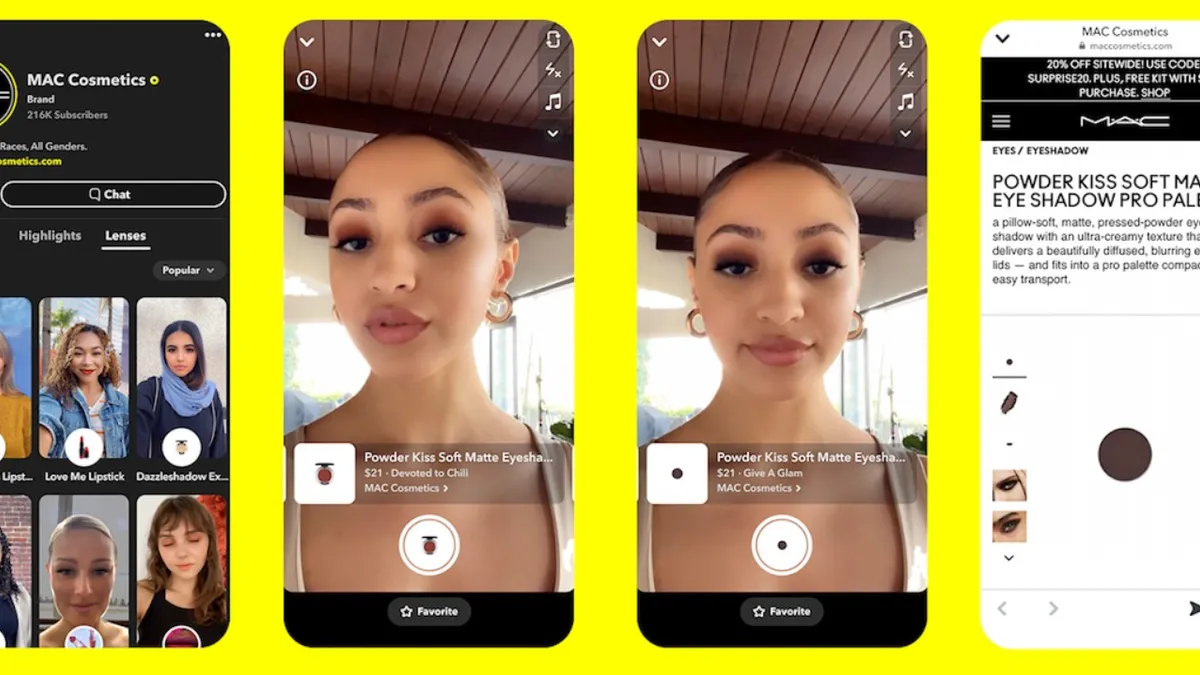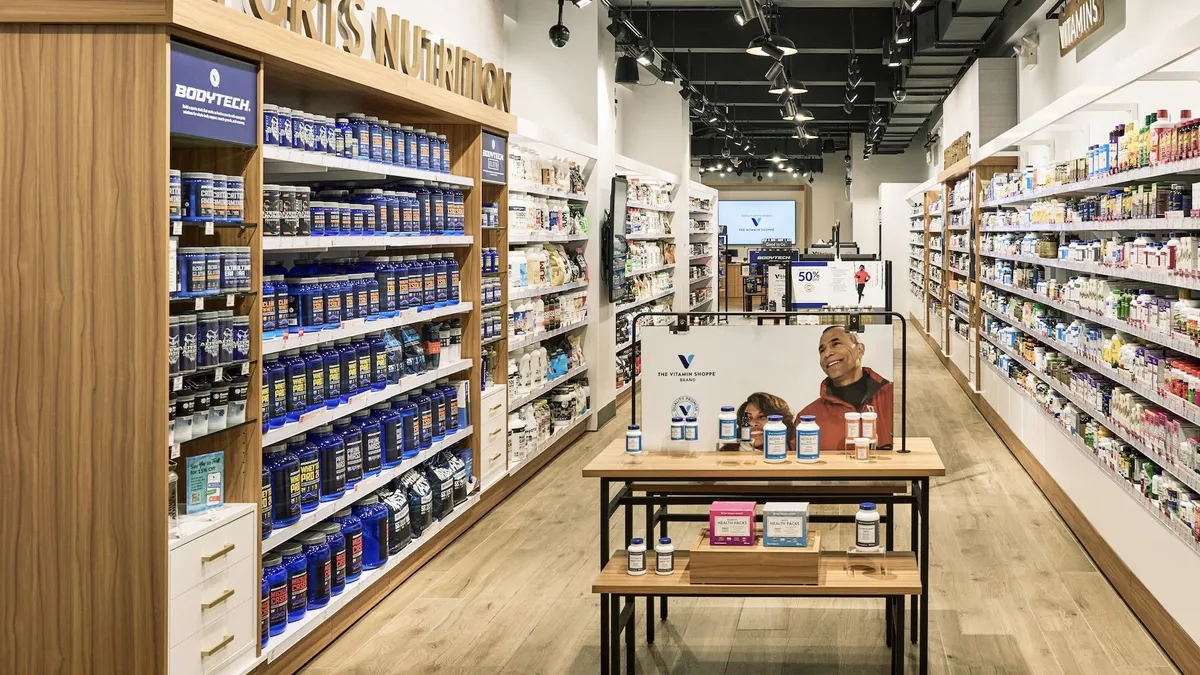Snapchat's rollout of updated shopping features is another sign that social networks see a bright future in e-commerce. Parent company Snap is among the social media trendsetters that seek to build upon their hold on consumer attention into direct sales for their advertisers.
Initial tests of a new "catalog-powered" shopping lens with retailer Ulta Beauty and makeup brand MAC Cosmetics showed positive results for augmented reality lenses that brands can directly link to their product catalogs. Ulta generated $6 million in sales and more than 30 million product try-ons during a two-week period, while MAC's shopping lens was tried on 1.3 million times. It experienced a 17-time lift in purchases among women, an increase of nine times in purchase intent and 2.4 times in brand awareness, according to results Snap shared with sister publication Marketing Dive.
Instead of showing two-dimensional images of their products to Snapchat users, marketers now have tools to engage mobile shoppers with immersive content such as virtual try-ons of cosmetics. The goal is to bring mobile users deeper into the purchase funnel after they browse products, transitioning them from passive social media user to active shopper and paying customer. AR technology gives users a 3D view they can control with facial gestures or screen taps. A high-touch AR experience helps to bring products to life while emulating the in-store experience as consumers shift more of their spending online — a behavior that was prevalent before the pandemic but has since been accelerated since the onset of the health crisis.
"Social commerce describes the customer journey from discovery to exploration to purchase of a product — all within a social media platform. It is one of the buzziest social media topics of 2021," according to new Forrester report. "Facebook, Instagram, Snapchat and TikTok all intensified their focus on social commerce in the last 18 months."
Gen Z favors social commerce
Younger U.S. consumers are especially interested in social commerce, compared with older cohorts. Twenty-nine percent of people younger than 25 said they complete a purchase on a social network without leaving the mobile site or app at least weekly, compared with only 12% of people ages 45-54, Forrester found.
To spur e-commerce growth, social media companies need to overcome consumer hesitancy and distrust in their platforms, the Forrester report notes. Just 19% of U.S. online adults think the information they read on social media is trustworthy, and a mere 10% trust social networks to keep their personal information secure.
The greater attention to e-commerce comes as U.S. brands find inspiration "from the example of China, the most advanced social commerce market in the world," according to eMarketer. The researcher estimated that Chinese consumers would boost their spending through social media by 35.5% last year to $363.3 billion. Social commerce in China is forecast to comprise 13.9% of total retail e-commerce sales this year, compared with only 4.6% in the U.S. — a disparity that suggests there is significant room for growth as social media companies built out their app shopping features.
Leveraging popularity of AR features
Snapchat's newest shopping features blend one of the photo-messaging app's most popular features — AR lenses — with the ability for brands to sell products directly to mobile consumers. Snapchat users engage with the app's AR features more than 6 billion times a day, and 93% of them are interested in using the technology for shopping, according to Snap. Its user base expanded 23% from a year earlier to 306 million in the third quarter of last year, company documents show, suggesting the app has staying power in the long run.
Snap's latest AR shopping tool comes as other tech companies expand their range of commerce-related services. This week, digital pinboard platform Pinterest introduced a Try On for Home Decor tool to give shoppers an AR preview of furnishings before making a purchase. E-commerce software maker Shopify for several years has supported AR content for online retailers that want to provide more vivid demonstrations of products.
Snap said more brands will introduce AR-driven shopping in the coming months. To ease the process of creating AR content for shopping, Snap developed templates for its online tools such as Lens Web Builder. The first templates were for beauty brands such as Ulta and MAC, and Snap plans to offer support for other product categories.
"Augmented reality is changing the way we shop, play, and learn, and transforming how businesses tell their stories and sell their products," Jeremi Gorman, chief business officer of Snap, said in a statement. "Our revamped AR Shopping Lenses will mean a more engaging experience for our Snapchat community."
























